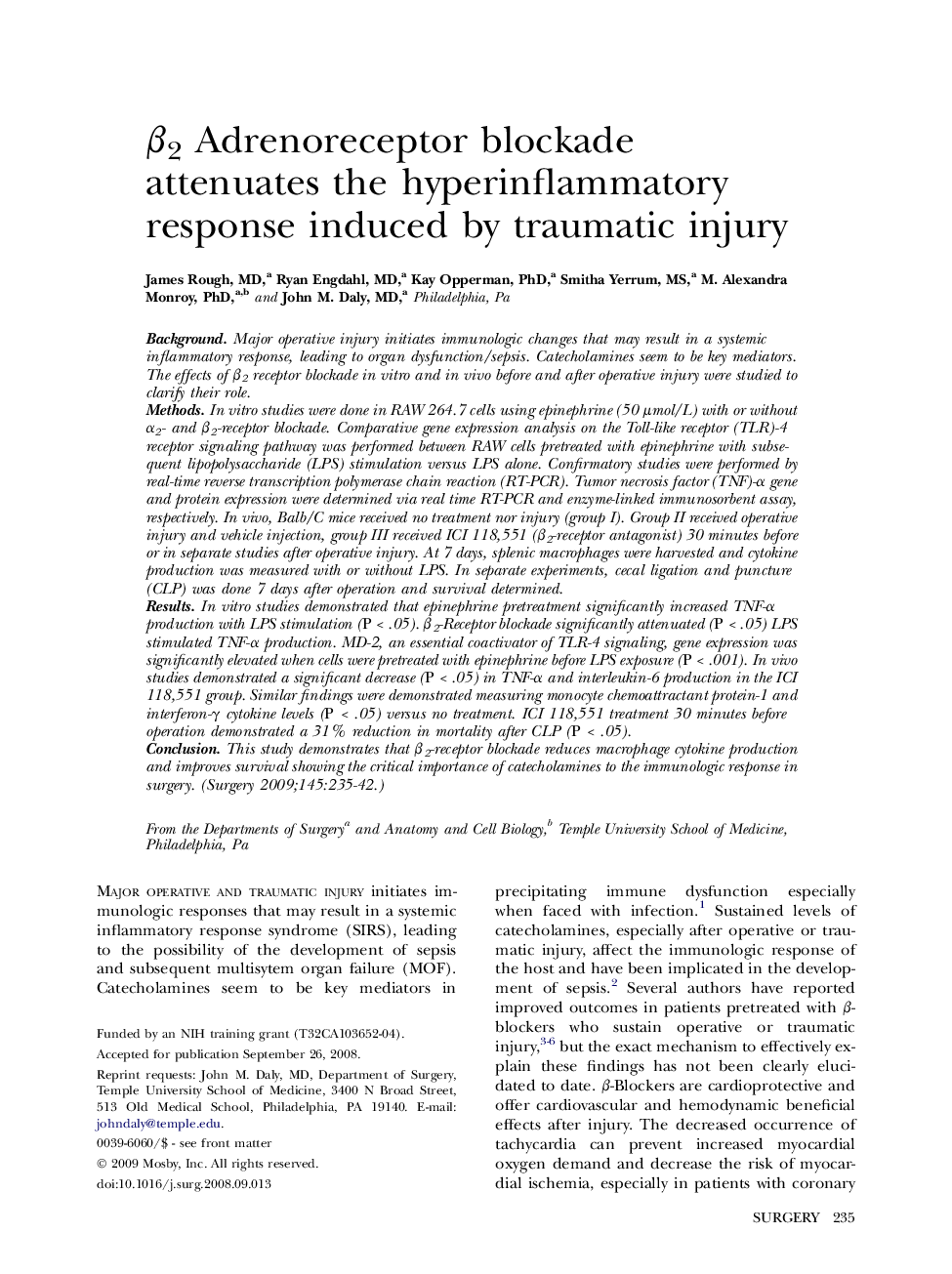| کد مقاله | کد نشریه | سال انتشار | مقاله انگلیسی | نسخه تمام متن |
|---|---|---|---|---|
| 4309148 | 1289302 | 2009 | 8 صفحه PDF | دانلود رایگان |

BackgroundMajor operative injury initiates immunologic changes that may result in a systemic inflammatory response, leading to organ dysfunction/sepsis. Catecholamines seem to be key mediators. The effects of β2 receptor blockade in vitro and in vivo before and after operative injury were studied to clarify their role.MethodsIn vitro studies were done in RAW 264.7 cells using epinephrine (50 μmol/L) with or without α2- and β2-receptor blockade. Comparative gene expression analysis on the Toll-like receptor (TLR)-4 receptor signaling pathway was performed between RAW cells pretreated with epinephrine with subsequent lipopolysaccharide (LPS) stimulation versus LPS alone. Confirmatory studies were performed by real-time reverse transcription polymerase chain reaction (RT-PCR). Tumor necrosis factor (TNF)-α gene and protein expression were determined via real time RT-PCR and enzyme-linked immunosorbent assay, respectively. In vivo, Balb/C mice received no treatment nor injury (group I). Group II received operative injury and vehicle injection, group III received ICI 118,551 (β2-receptor antagonist) 30 minutes before or in separate studies after operative injury. At 7 days, splenic macrophages were harvested and cytokine production was measured with or without LPS. In separate experiments, cecal ligation and puncture (CLP) was done 7 days after operation and survival determined.ResultsIn vitro studies demonstrated that epinephrine pretreatment significantly increased TNF-α production with LPS stimulation (P < .05). β2-Receptor blockade significantly attenuated (P < .05) LPS stimulated TNF-α production. MD-2, an essential coactivator of TLR-4 signaling, gene expression was significantly elevated when cells were pretreated with epinephrine before LPS exposure (P < .001). In vivo studies demonstrated a significant decrease (P < .05) in TNF-α and interleukin-6 production in the ICI 118,551 group. Similar findings were demonstrated measuring monocyte chemoattractant protein-1 and interferon-γ cytokine levels (P < .05) versus no treatment. ICI 118,551 treatment 30 minutes before operation demonstrated a 31% reduction in mortality after CLP (P < .05).ConclusionThis study demonstrates that β2-receptor blockade reduces macrophage cytokine production and improves survival showing the critical importance of catecholamines to the immunologic response in surgery.
Journal: Surgery - Volume 145, Issue 2, February 2009, Pages 235–242